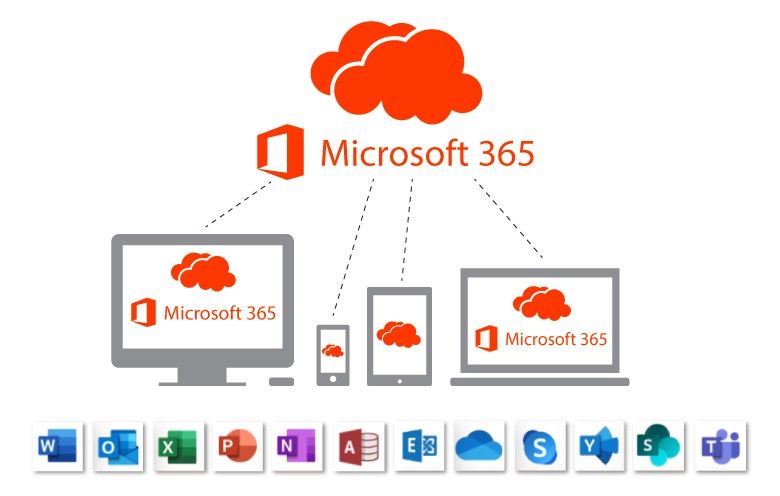
Microsoft 365 Email Server
Microsoft 365, formerly known as Office 365, offers a comprehensive suite of services, including business-class email hosting.
Microsoft 365 (formerly Office 365) offers significant benefits for organizations. Let’s explore them:
End-User Productivity:
Collaboration Tools: Microsoft 365 provides a suite of collaboration tools like Teams, SharePoint, and OneDrive, enabling seamless communication, document sharing, and real-time collaboration among team members.
Anywhere Access: Users can access their emails, files, and applications from any device with an internet connection, enhancing productivity and flexibility.
Security and Compliance:
Advanced Threat Protection: Microsoft 365 includes robust security features such as anti-phishing, anti-malware, and data loss prevention (DLP) to safeguard against cyber threats.
Encryption: Emails and data are encrypted both in transit and at rest, ensuring sensitive information remains secure.
Compliance Features: Microsoft 365 adheres to industry standards and regulations, making it suitable for organizations with compliance requirements (e.g., GDPR, HIPAA).
Scalability and Cost-Efficiency:
Scalability: Microsoft 365 grows with your organization. You can easily add or remove users, adjust licenses, and scale up/down as needed.
Predictable Costs: Subscription-based pricing eliminates the need for upfront hardware investments and provides predictable monthly costs.
Reduced Infrastructure Maintenance: No need to manage on-premises servers, backups, or updates.
Integrated Suite of Applications:
Email, Calendar, and Contacts: Microsoft 365 offers a robust email platform with shared calendars and contacts.
Office Apps: Access to familiar applications like Word, Excel, PowerPoint, and Outlook.
Cloud Storage: OneDrive provides ample cloud storage for files and documents.
Automatic Updates and Innovation:
Microsoft continuously updates and enhances its services. Subscribers automatically receive new features, security patches, and improvements without manual intervention.
Business Continuity and Disaster Recovery:
Data is stored in geographically redundant data centers, ensuring high availability and disaster recovery capabilities. In case of local outages or disasters, users can continue working from any location.

